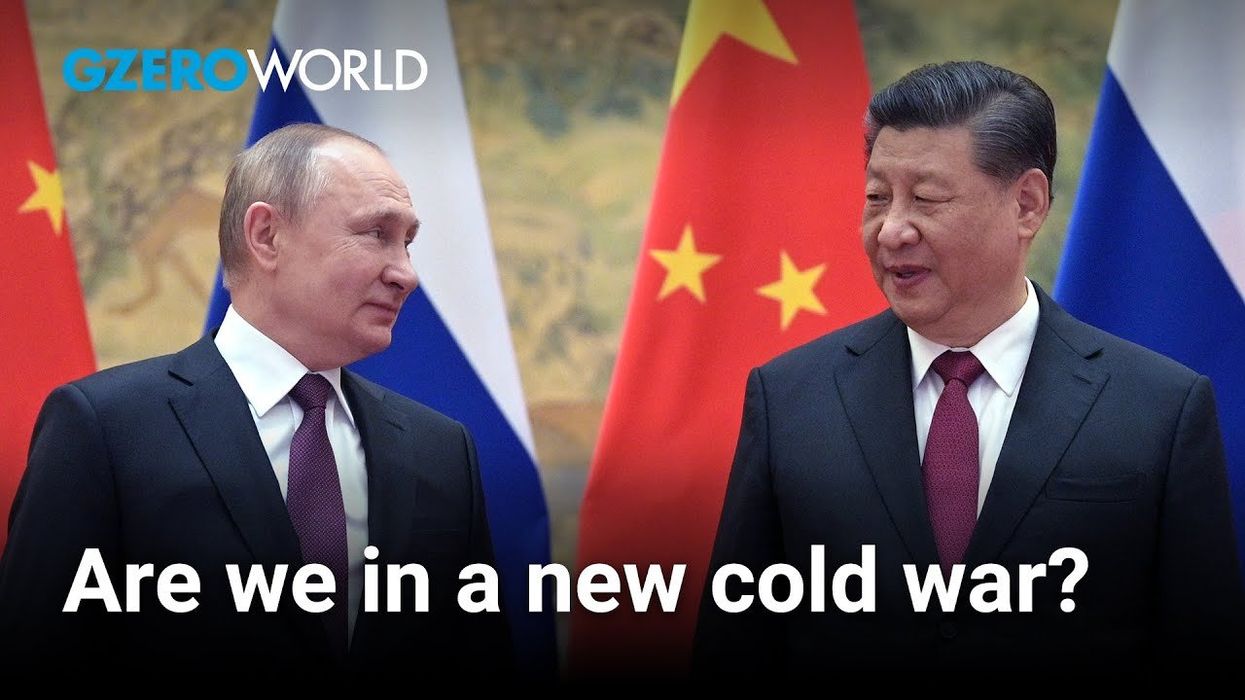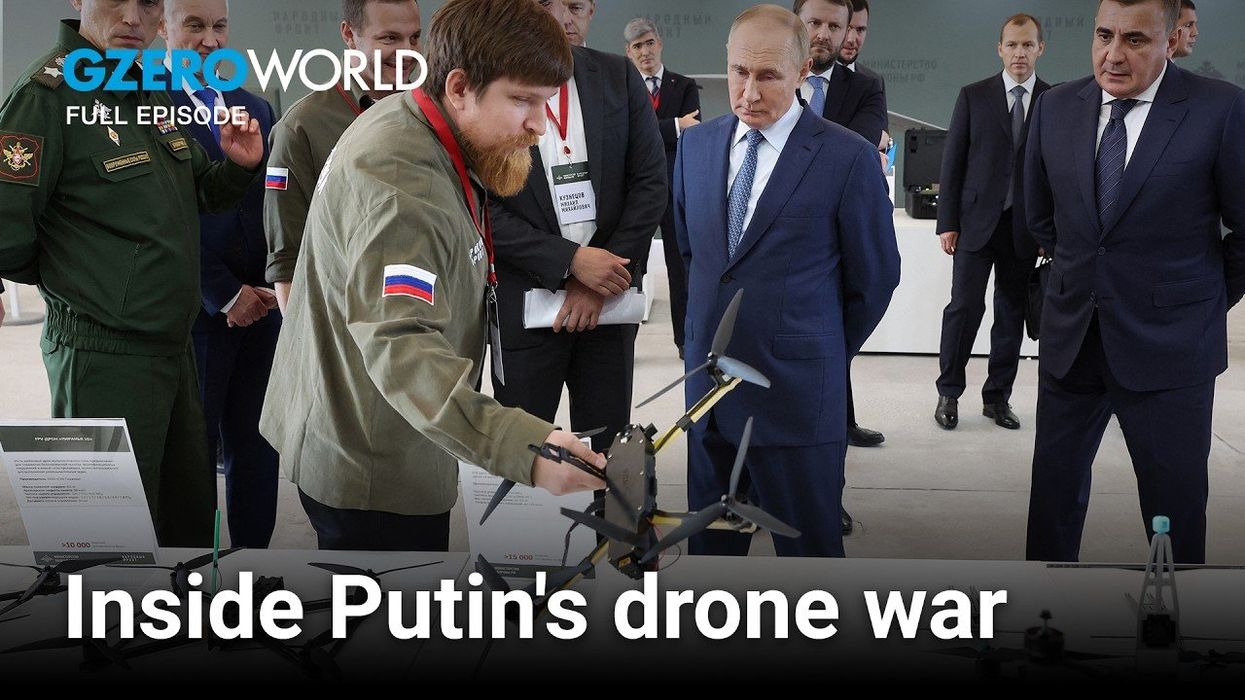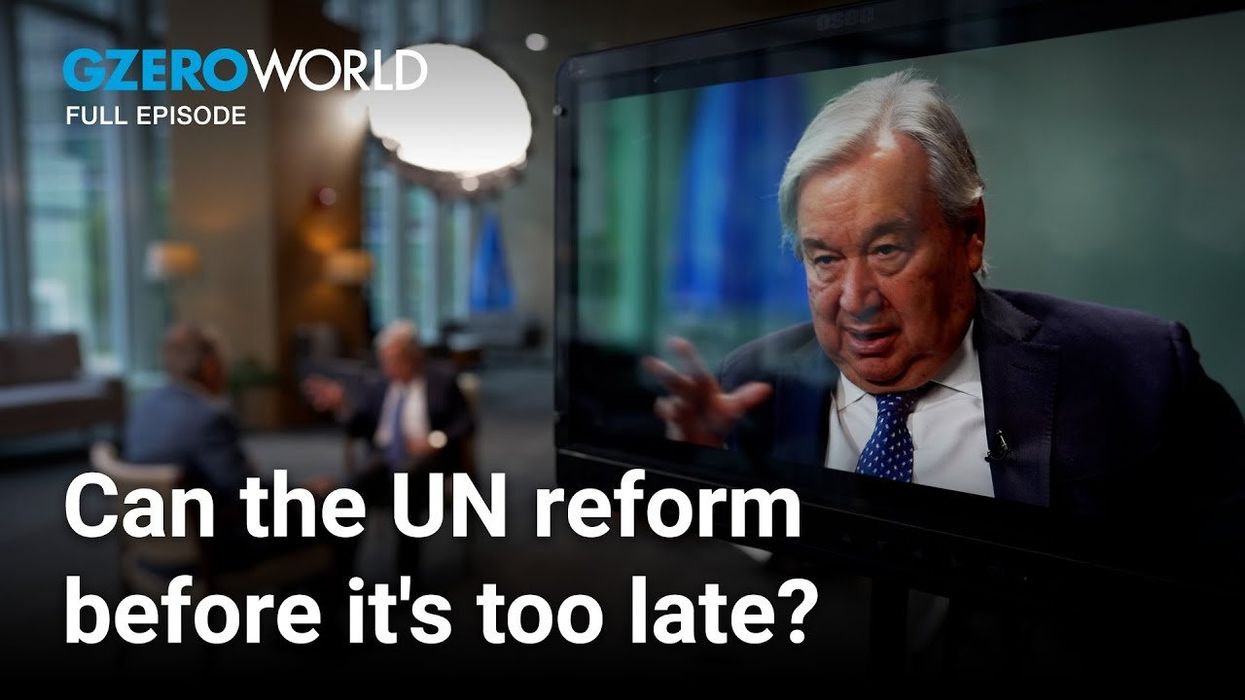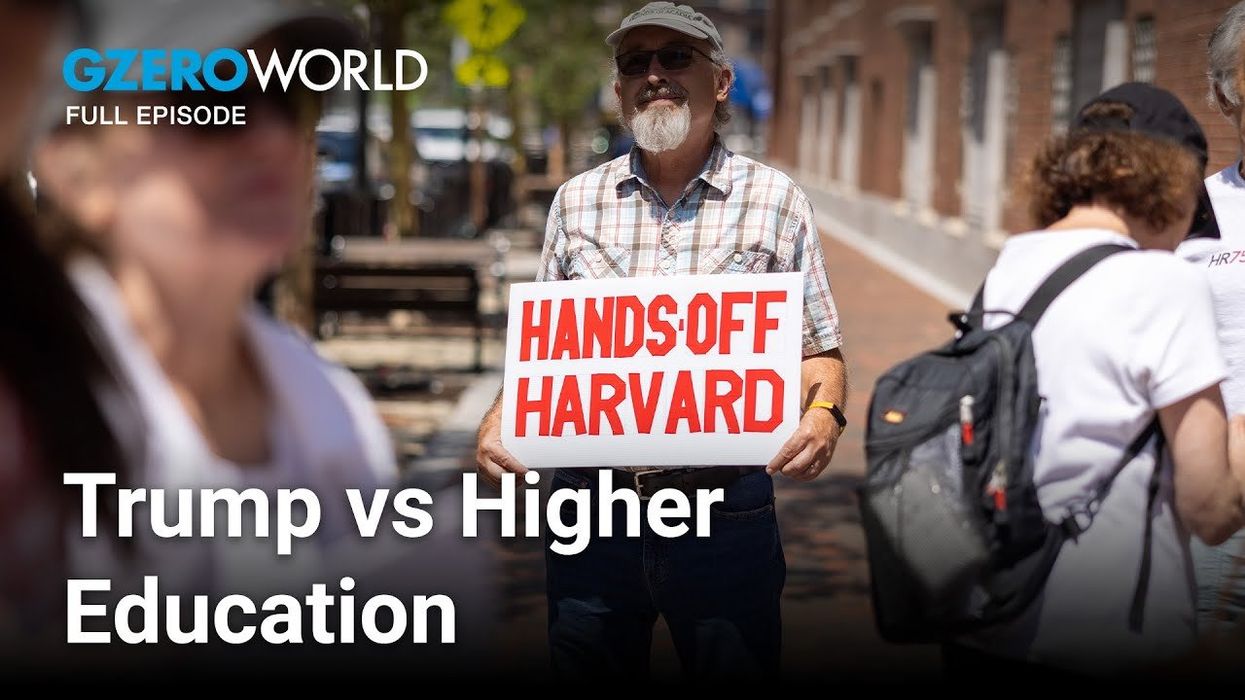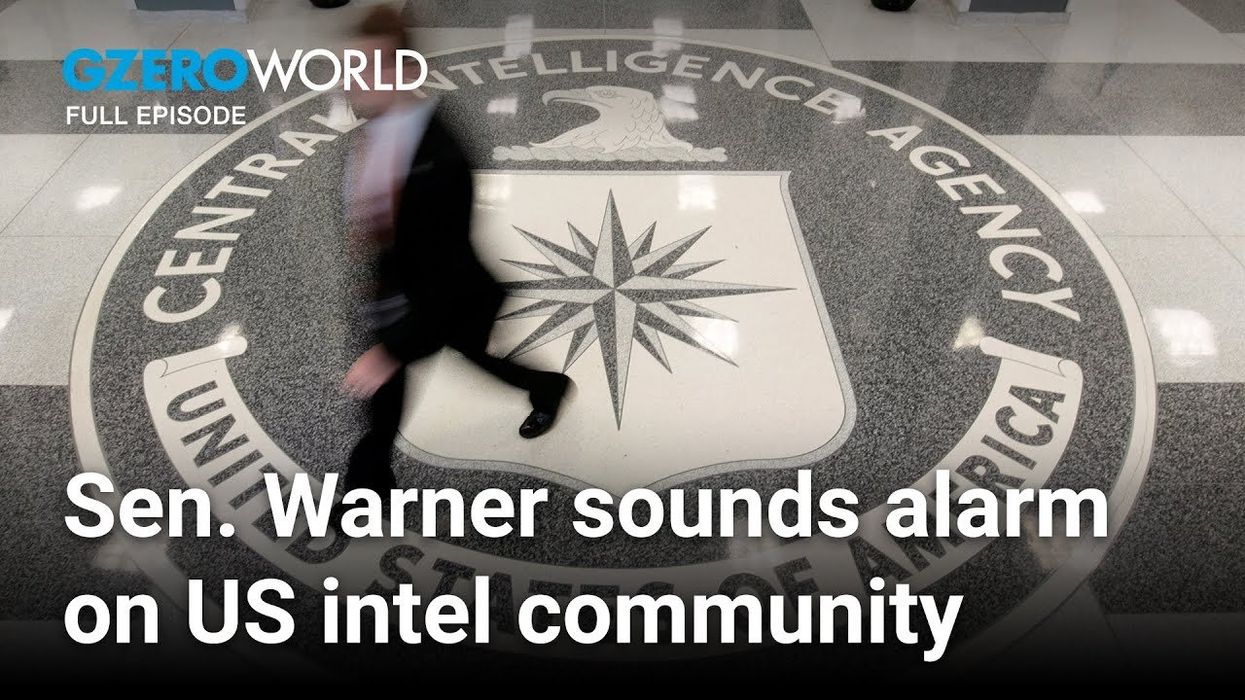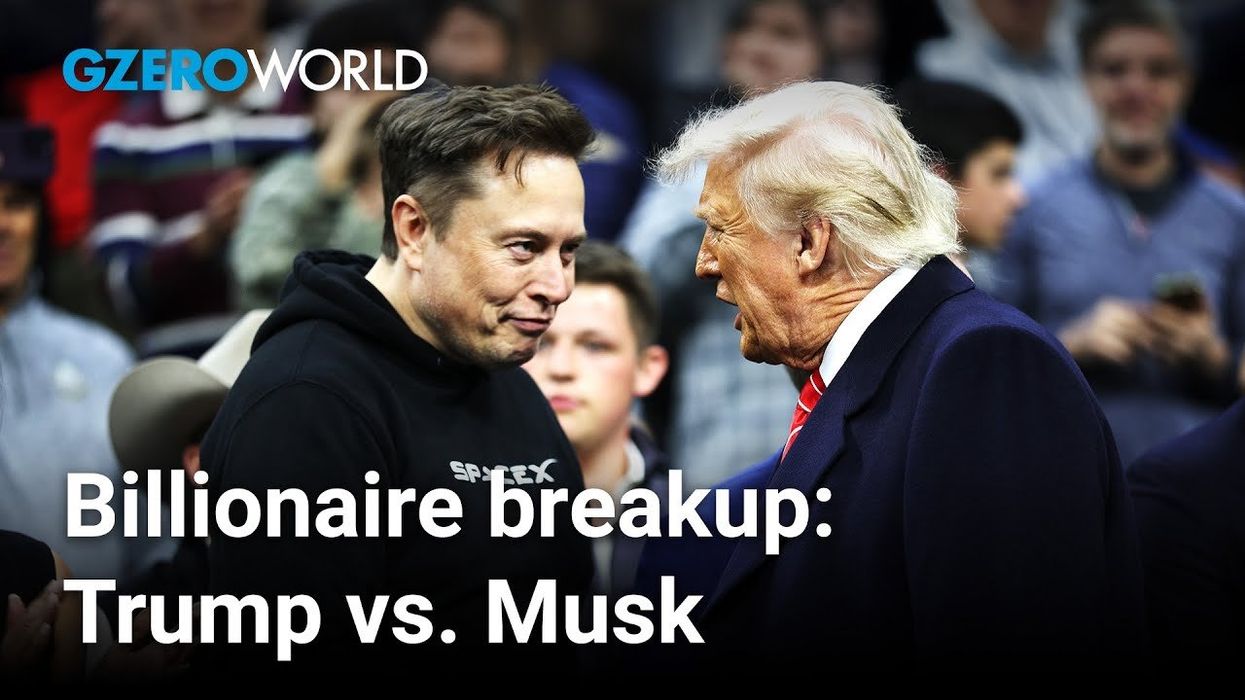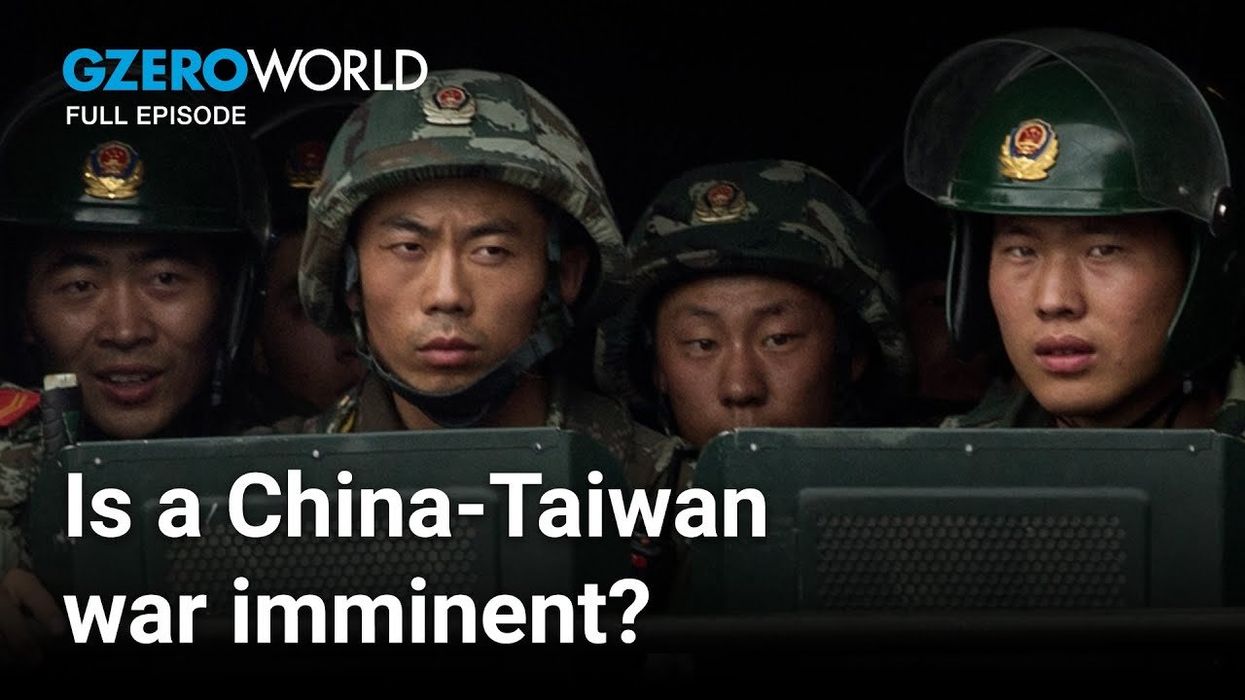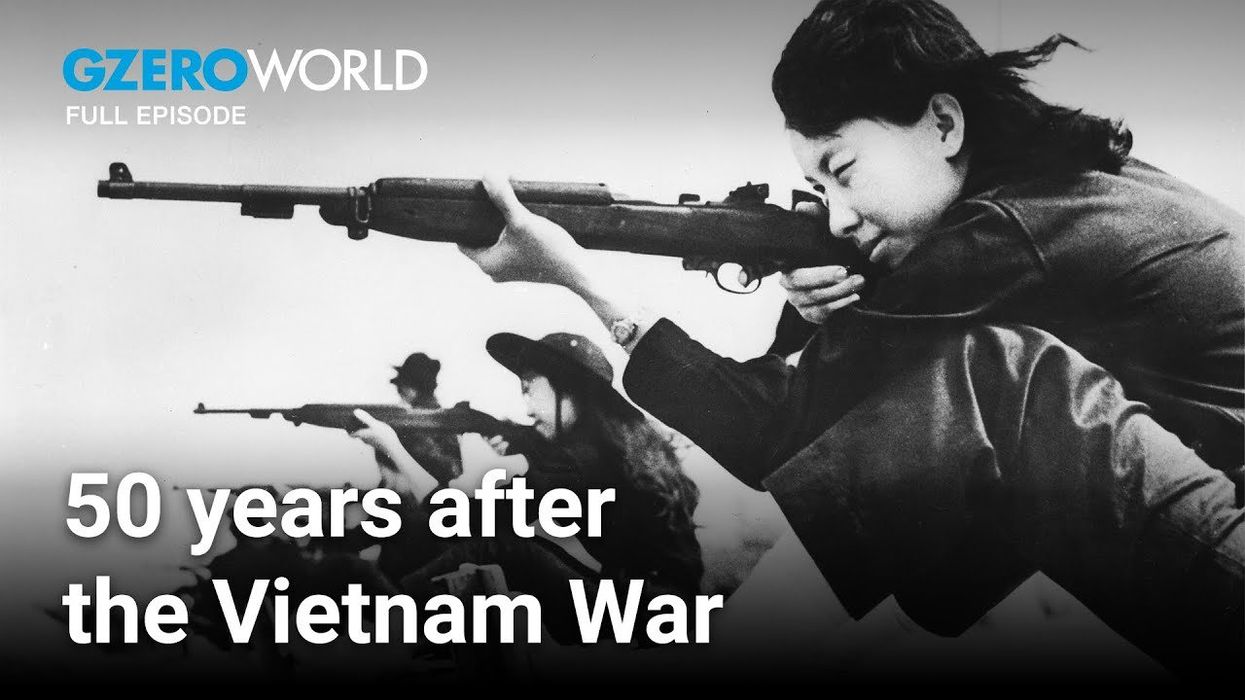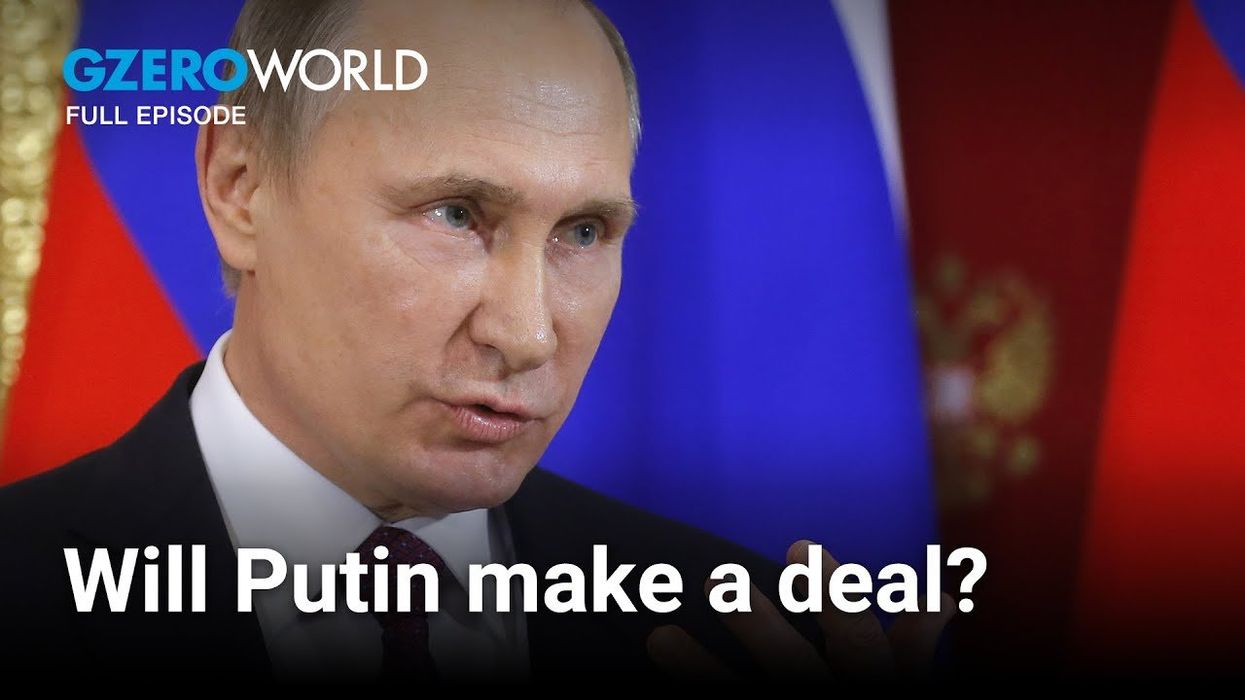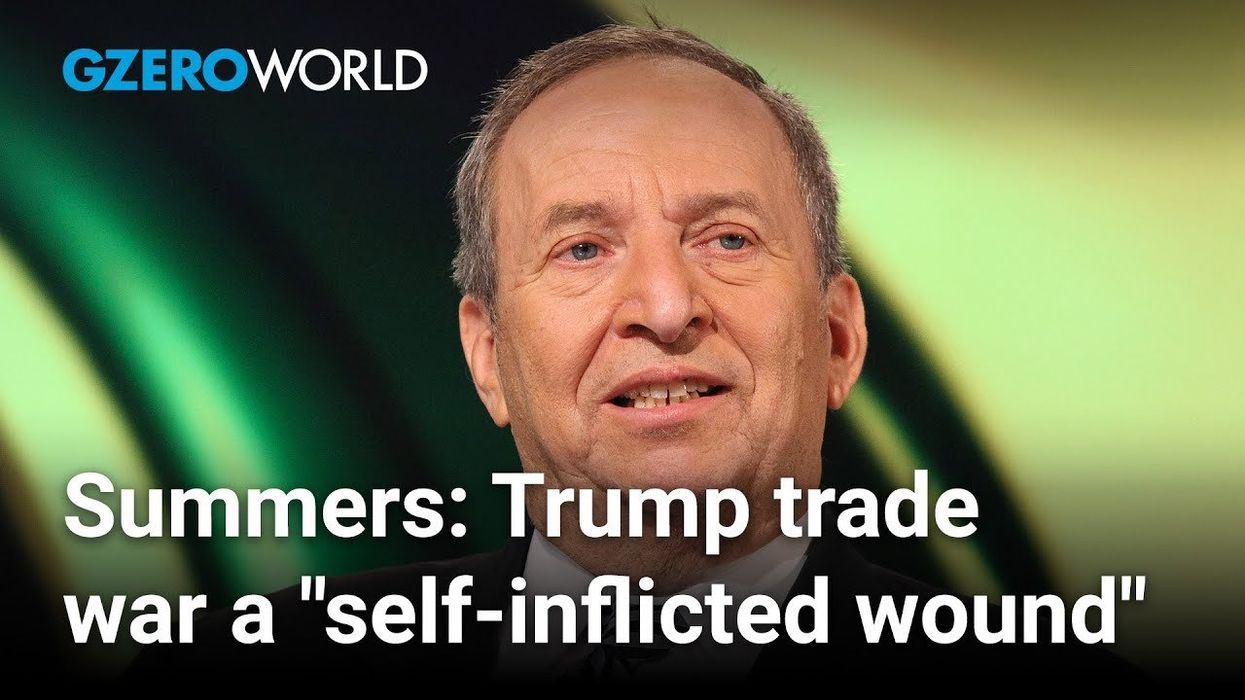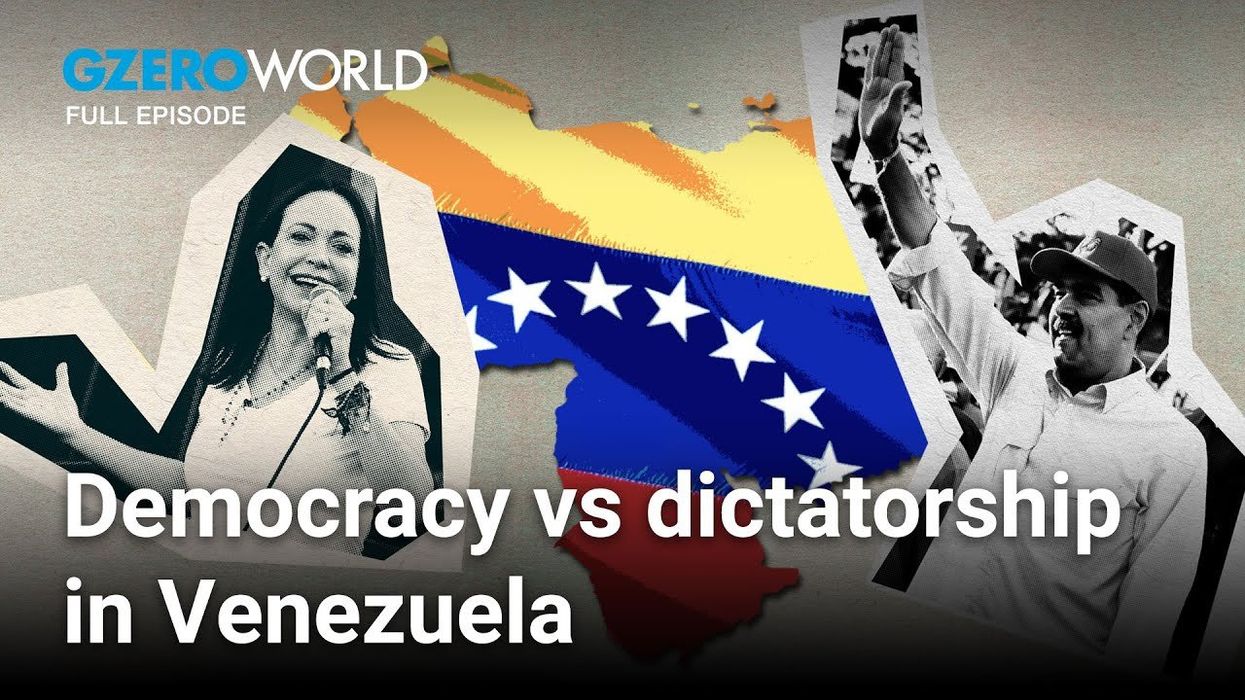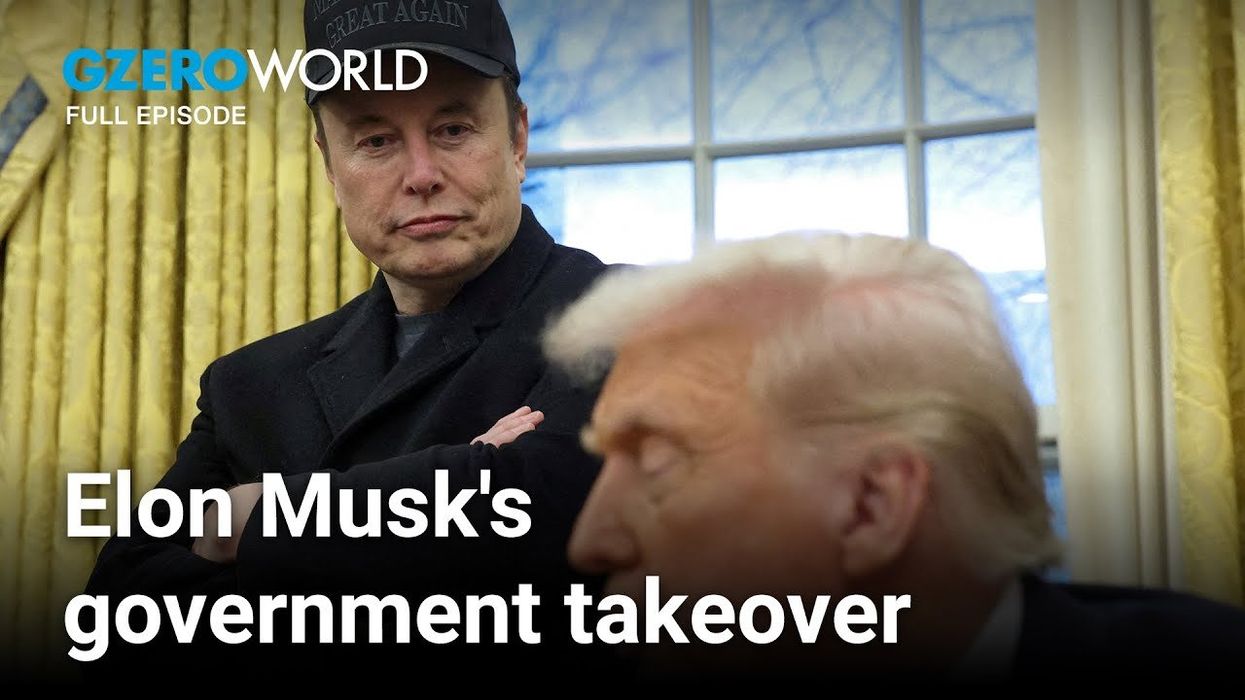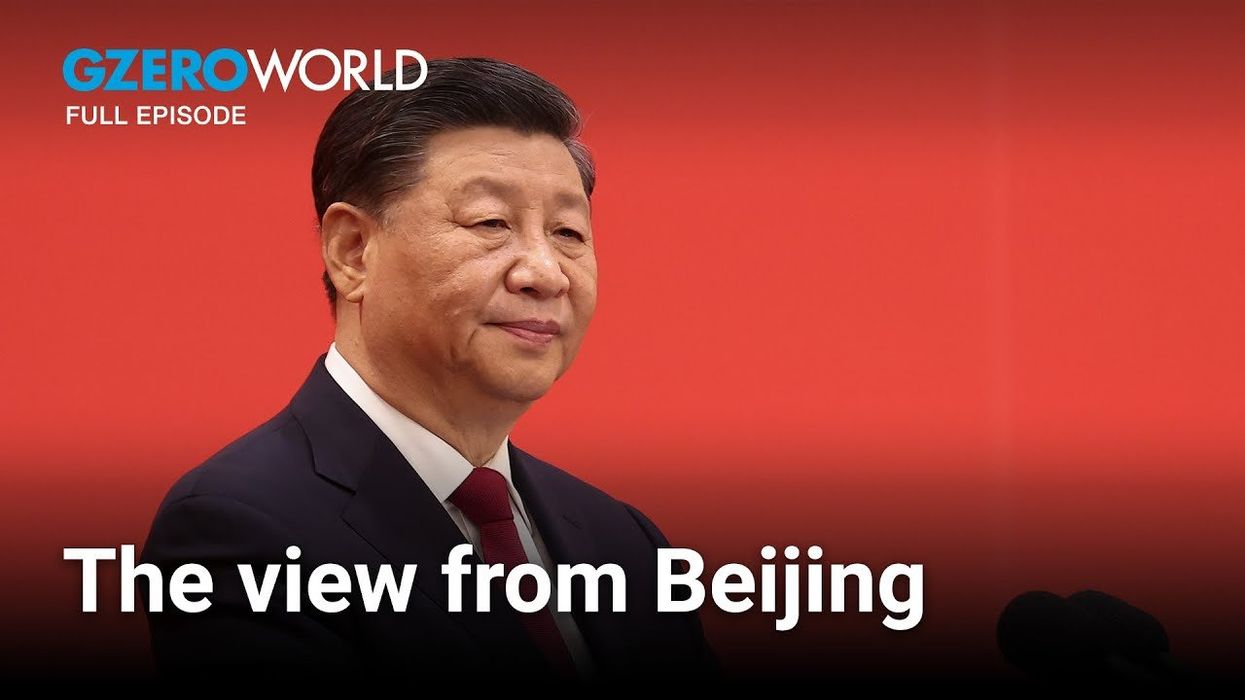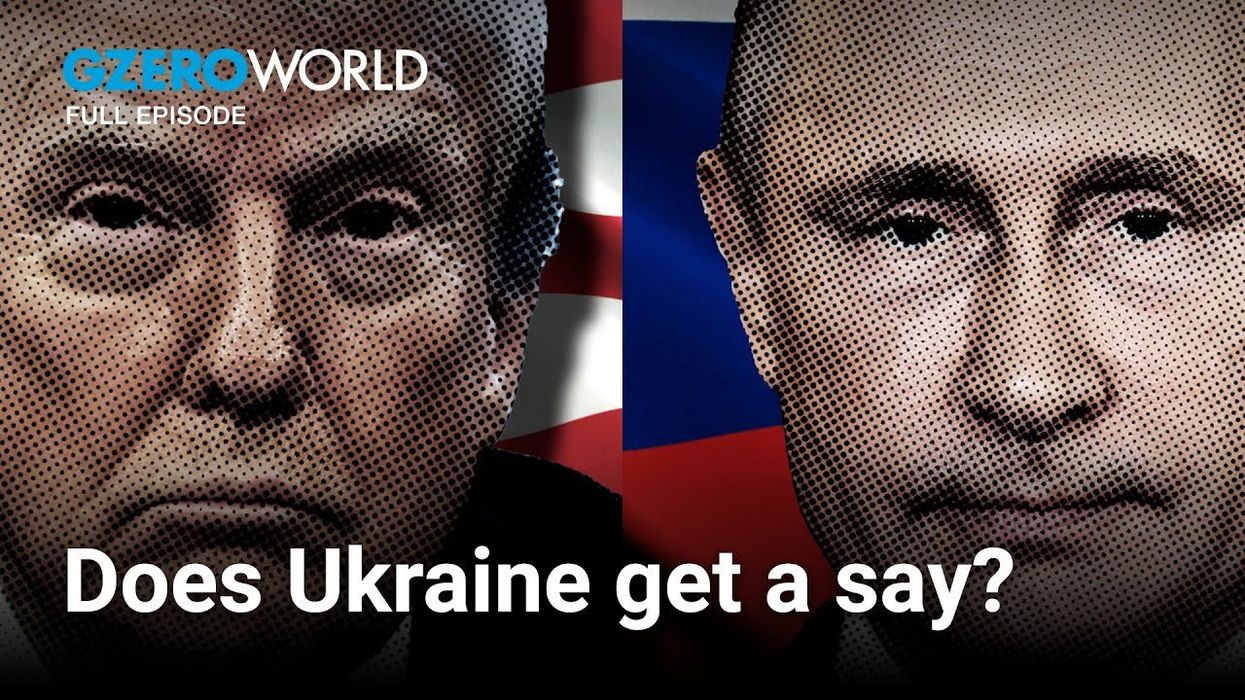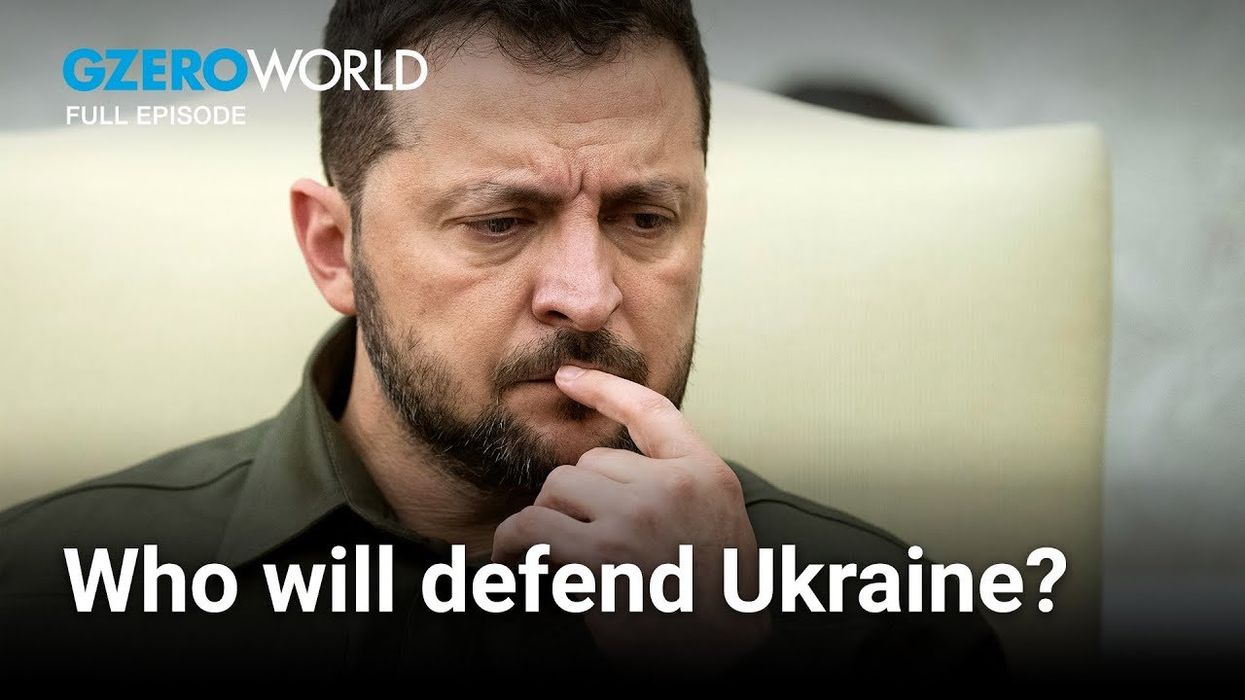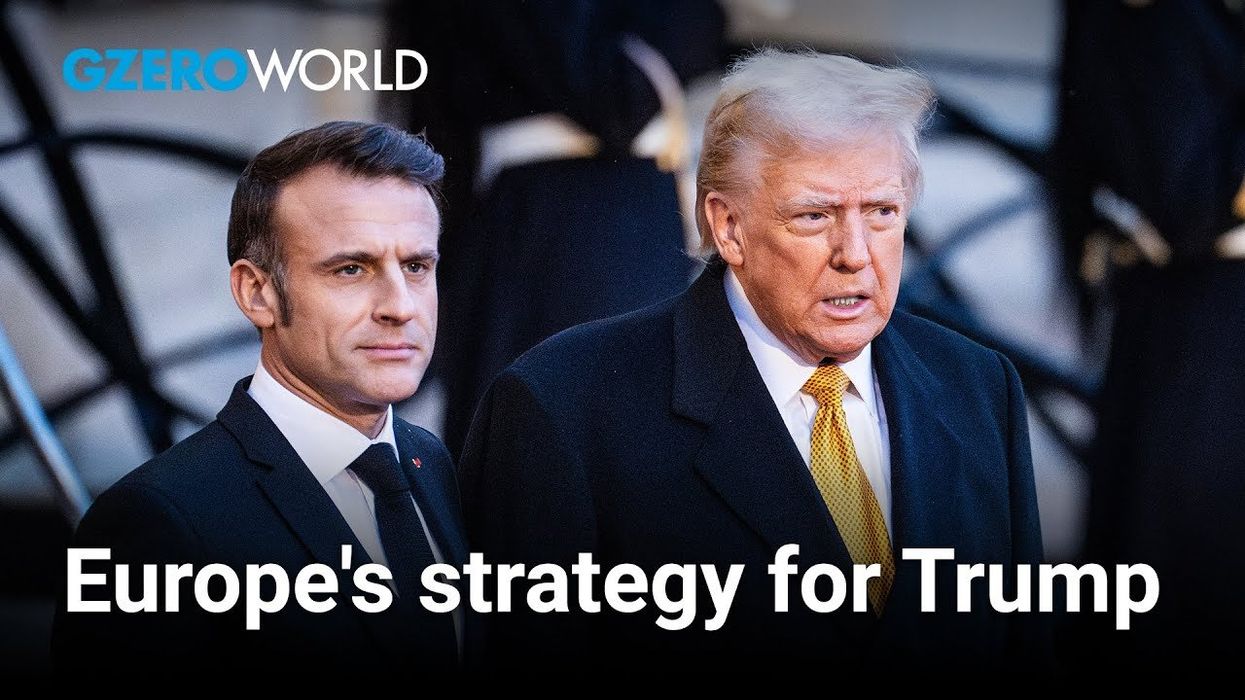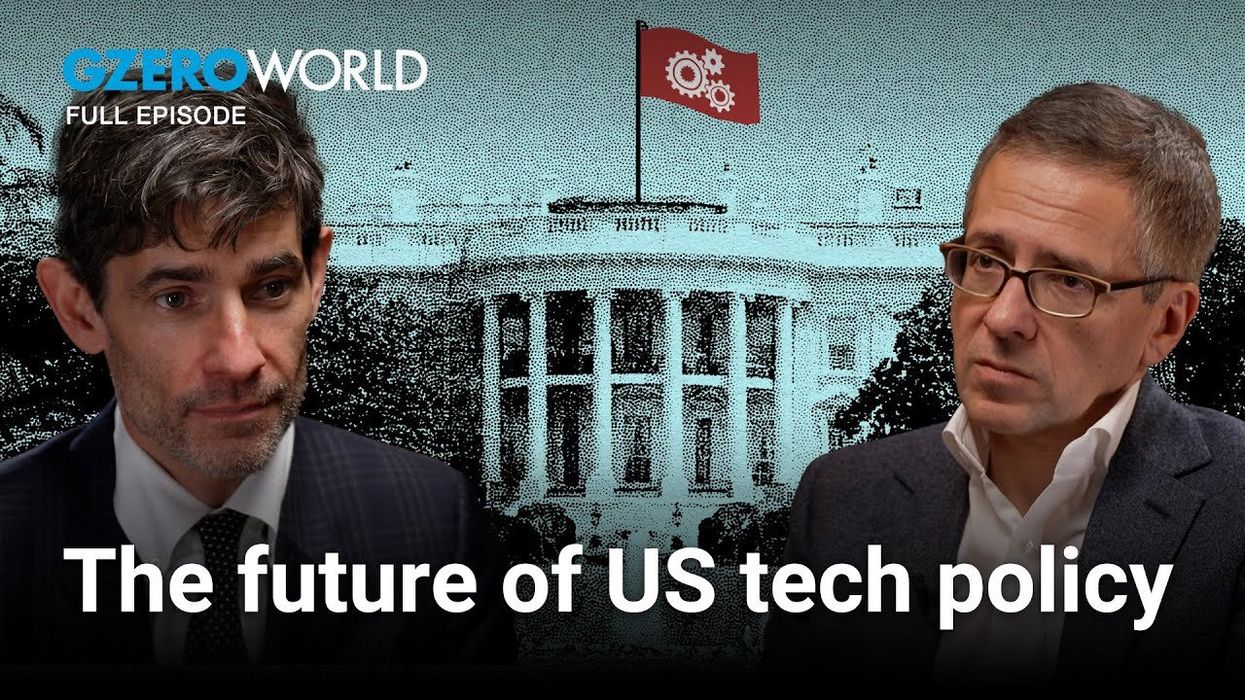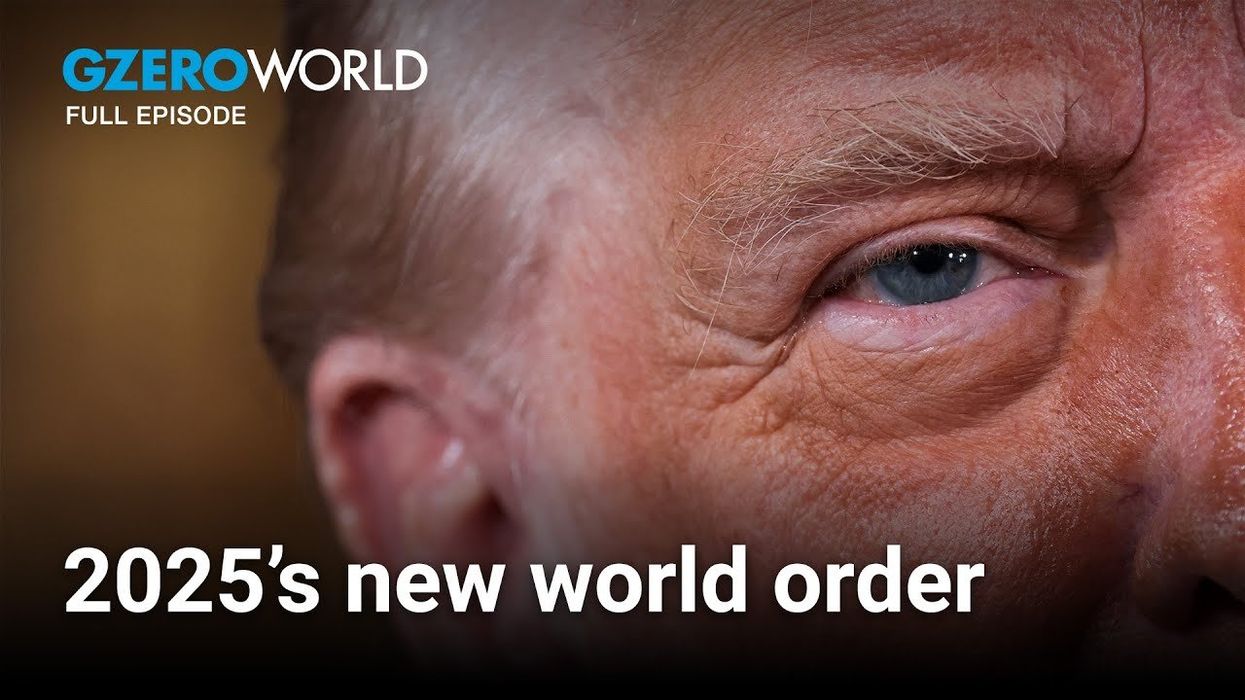VIDEOSGZERO World with Ian BremmerQuick TakePUPPET REGIMEIan ExplainsGZERO ReportsAsk IanGlobal Stage
Site Navigation
Search
Human content,
AI powered search.
Latest Stories
Sign up for GZERO Daily.
Get our latest updates and insights delivered to your inbox.
Global Stage: Live from Davos
WATCH
“We are back in a period of superpower competition that will probably go on for decades. And that, if we're lucky, remains a cold war.” David Sanger, a Pulitzer prize-winning national security correspondent for The New York Times, joins Ian Bremmer on a new episode of GZERO World to offer a clear-eyed take on America’s adversaries. He’s out with a new book called "New Cold Wars: China's Rise, Russia's Invasion, and America's Struggle to Defend the West." The takeaway: we’re entering a new and increasingly unstable era of geopolitics where the US, China, and Russia will be vying for power and influence like never before. China's rise as a world leader and economic powerhouse, along with Russia's nuclear saber-rattling and increasing military cooperation, poses an unprecedented challenge to US dominance.
But unlike the Cold War that dominated the 20th century, where the US and the Soviet Union could operate essentially independently from each other, the world today is far more connected. "It's a cold war that bears almost no resemblance to the one that you and I are old enough to remember, because in that Cold War, we had a single competitor, and we weren't dependent on them, nor they on us for very much."
Sanger also talks about America’s missed opportunities and misjudgments in dealing with Russia and China. There were early hopes of engagement with Russia under Yeltsin's presidency, which quickly eroded when Putin came to power. Similarly, there was a belief that integrating China into the global economy would lead to political reform. However, this bet did not play out as expected, with the Communist Party using digital forces for explicit repression techniques. "It became pretty evident, pretty clearly that the Communist party had learned how to take these same digital forces and use them for the most explicitly designed repression techniques we have ever seen.”
But one area where both Russia and China have a shared interest? Pitting Americans against each other. “They have every incentive, both Russia and China, to be subtle actors in the background of this coming presidential election,” Sanger tells Bremmer. “And that's one area where if they are not cooperating, it would pay them off considerably to coordinate.”
Catch GZERO World with Ian Bremmer every week on US public television (check local listings) and online.
Keep reading...Show less
More from GZERO World with Ian Bremmer
The state of global conflict in 2025
December 22, 2025
In Wikipedia We Trust?
December 15, 2025
'Godfather of AI' warns of existential risks
December 08, 2025
Could the US really invade Venezuela?
November 24, 2025
Will "AI euphoria" crash the markets?
November 17, 2025
Is the US falling behind China?
November 10, 2025
The dangers of unchecked AI
October 27, 2025
Republicans and Democrats are more divided than ever
October 20, 2025
Did Netanyahu got everything he wanted in Gaza peace deal?
October 04, 2025
Putin's drone battle for Ukraine's skies
September 29, 2025
The world is on fire and the UN is running out of money
September 19, 2025
Will the clean energy revolution leave the US behind?
September 15, 2025
How AI is transforming medicine, and the cancer fight
September 07, 2025
The global refugee crisis is at breaking point
August 25, 2025
India vs. Pakistan: Rising tensions in South Asia
August 16, 2025
As Trump pressures universities, what's really at stake?
August 10, 2025
Are Trump's tariffs the end of the free trade era?
August 02, 2025
Is the US Intelligence community at a breaking point?
July 21, 2025
The dangerous new nuclear arms race
July 14, 2025
President Trump takes on the Judiciary
June 14, 2025
What’s behind Trump & Musk’s public feud?
June 10, 2025
Could China invade Taiwan?
June 09, 2025
Can Pope Leo XIV heal the Church–and his own country?
June 02, 2025
Why Sen. Chris Van Hollen stood up to Trump
May 12, 2025
The battle for free speech in Donald Trump's America
May 05, 2025
50 years after the Vietnam War
April 28, 2025
Will Russia agree to a ceasefire in Ukraine?
April 14, 2025
The rise of Elon Musk's DOGE under Trump
March 31, 2025
Trump’s trade war: Who really wins?
March 24, 2025
China’s next move
March 17, 2025
The fight to decide Ukraine's fate
March 02, 2025
Defending Ukraine and Europe without the US
February 24, 2025
What if Palestinians want to leave Gaza?
February 18, 2025
Who gets to decide Gaza's future?
February 17, 2025
Trump's health agenda—from RFK Jr. to leaving WHO
February 07, 2025
Europe's new future with Trump 2.0
February 03, 2025
Big Tech under Trump 2.0
January 20, 2025
Francis Fukuyama on the new leaderless global order
January 13, 2025
About the Show
Every week on GZERO World with Ian Bremmer, Ian explains the key global stories of the moment, sits down for an in-depth conversation with the newsmakers and thought leaders shaping our world.
Watch GZERO World on US public television and on GZERO's YouTube channel. GZERO WORLD with Ian Bremmer is a local public television program presented by THIRTEEN PBS.
GZERO Series
GZERO Daily: our free newsletter about global politics
Keep up with what’s going on around the world - and why it matters.
